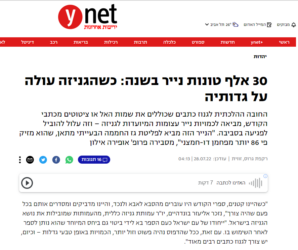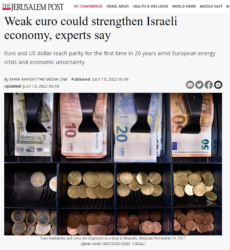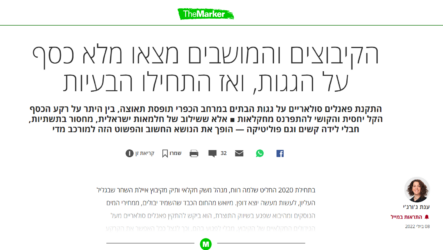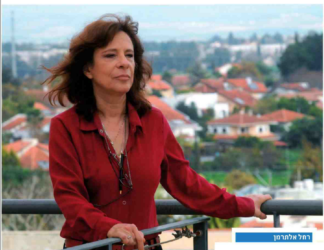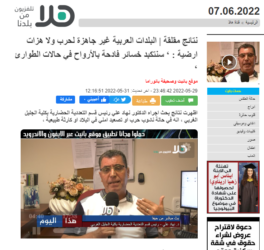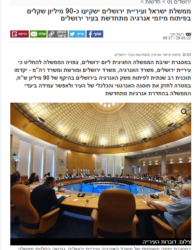Connect to schedule an interview
+972.4.829.2329
Neaman in the media
30,000 tons a year: when the Geniza overflows
How does the landfilling of the Geniza in quarries affect the environment?
Prof. Ofira Ayalon, an expert in waste management, explains.
Three who know (KAN) Interview with Prof. Ofira Ayalon
Prof. Ofira Ayalon in an interview on the benefits and problems of clean energy supply in California. As well as, on the need for energy efficiency
Weak euro could strengthen Israeli economy, experts say
The weakness of the euro could not only help boost European companies’ sales in the coming months but could also benefit the Israeli market, according to Dr. Gilead Fortuna
Links to the article:
Weak euro could strengthen Israeli economy, experts say – The Jerusalem Post (jpost.com)
Weak euro could strengthen Israeli economy, experts say (ynetnews.com)
Weak Euro Could Strengthen Israeli Economy, Experts Say – The Media Line
The kibbutzim and moshavim found a lot of money on the roofs, and then the problems started
Prof. Rachelle Alterman: “RAMI detrimental to the attempt to establish renewable energies”
The politicians are distributing huge benefits to real estate developers, those who will lose are the apartment renters, who will be left with nothing
Prof. Rachelle Alterman, an urban planner at the Technion, warns that the long-term rental projects at a regulated price that many are now praising will have a fatal impact on apartment renters — and recommends not listening to politicians telling you how it works great all over the world.
Dr. Nohad Ali talks about his research on social resilience in Arab society
Dr. Nohad Ali talks about social resilience in Arab society: consciousness, cultural adaptation, and recommendations for action.
The study was in collaboration with the National Emergency Authority and the Ministry of Social Equality
Strategic Energy Plan in Jerusalem
Ofira Ayalon, Idan Liebes, Naama Shapira
At a special cabinet meeting, on the occasion of Jerusalem Day held on May 29 2022, a government decision was agreed upon concerning a strategic energy plan for the city of Jerusalem. Background materials were prepared by Samuel Neaman Institute team, which includes Prof. Ofira Ayalon, Idan Liebes and Naama Shapira, and in cooperation with Ms. Dana Gabay and Adv. Anat Mamlok, for the Jerusalem Municipality and through Eden – the Jerusalem Economic Development Company.
The government’s desicion, which was conducted in cooperation with a long list of Government ministries – the Ministry of Energy, the Electricity Authority, the Prime Minister’s Office, the Ministry of Finance, the Ministry of Jerusalem and Heritage, the Ministry of Development of the Negev and the Galilee, the Ministry of Religious Services and the Ministry of Social Affairs and Social Security –90 NIS million were allocated over the years 2022-2025.
The plan includes a series of significant steps, including the preparation of a multi-year strategic energy plan in Jerusalem (for the first time in Israel), the development of the electricity distribution network, energy efficiency as well as the promotion of renewable energy, the promotion of efficient low-emission energy transportation, the development of the natural gas sector in the city, energy development of East Jerusalem, and more.
Links to several articles on the subject:
תוכנית אסטרטגית לאנרגיה בירושלים | מספר החלטה 1515 | משרד ראש הממשלה (www.gov.il)
ממשלת ישראל ועיריית ירושלים ישקיעו כ-90 מיליון שקלים בפיתוח מיזמי אנרגיה בירושלים – Digital Age
KAN (Reshet Bet)/ Interview with Prof. Ofira Ayalon
Prof. Ofira Ayalon, in an interview:
The wealth fund will start operating from tomorrow, the profits are from the nation’s natural resources. It’s time to use the money for the benefit of Israel’s residents – reduce greenhouse gas emissions, invest in advanced technologies and prepare for climate change.
Prof. Ofira Ayalo at Dalik Volenitch
Prof. Ofira Ayalon is talking about the Western world throwing food in huge quantities.
The world is in a global food crisis because of the coronavirus, damage to the food supply chains as well as the impact of the war in Ukraine. On top of these- the climate crisis. In order to produce food, we need energy, water, pesticides, fertilizers and more.
So food wastage has wider effects. In order to minimize this problem we need personal responsibility (such as planning food purchases) and the responsibility of the state.

